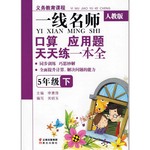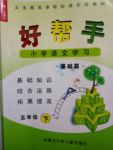题目内容
Once upon a time, there lived two parent parrots. Every morning they flew out to food for their two young birds. One day, a hunter the young birds. The young birds to free themselves from the hands of the hunter. One from the hunter, while the other was taken in a cage by the hunter to his house. He gave it to his .
The other parrot flew away and came to a place where some holy men lived. They did not the young parrot, so it stayed there. It their talk and learned to say a few words.
Several years later, a traveler was walking near the hunter’s hut(小屋). He sat near the hut, extremely . He heard the parrot that lived there say, “ , why have you come here? I will cut your throat.” The traveler got up and left the place in a hurry. Then he happened to reach the place where the other parrot lived. The parrot was sitting on a tree. Seeing the traveler, it said, “Welcome, traveler. Welcome to this hermitage(偏僻的寺院). We have a lot of good in this forest, which looks sweet and delicious. Eat whatever you like. The holy men will you well.”
The traveler was . He couldn’t understand why this parrot was so polite the other one was so rude. They were both parrots, after all. it wasn’t strange. The parrot he met first lived with the hunter’s children who often spoke words, while the parrot he met later had learned the of holy people.
Our growing environment is of great . It is the company that shapes our words and deeds. Good company helps us learn good things while bad company the contrary. Therefore, choose the people to grow up with.
1.A. get B. preserve C. cook D. buy
2.A. defeated B. threatened C. caught D. observed
3.A. flew B. screamed C. advanced D. struggled
4.A. disappeared B. learned C. escaped D. died
5.A. cousins B. kids C. neighbors D. parents
6.A. harm B. follow C. know D. demand
7.A. looked for B. cared for C. referred to D. listened to
8.A. disappointed B. tired C. concerned D. excited[
9.A. Father B. Officer C. Fool D. Sir
10.A. suddenly B. gradually C. hardly D. immediately
11.A. rice B. fruit C. meat D. bread
12.A. treat B. understand C. guide D. protect
13.A. interested B. thrilled C. surprised D. relaxed
14.A. though B. unless C. as D. while
15.A. Necessarily B. Actually C. Fortunately D. Strangely
16.A. dirty B. short C. dishonest D. amazing
17.A. language B. joy C. attitude D. experience
18.A. difference B. shock C. value D. importance
19.A. picks up B. consists of C. leads to D. makes up
20.A. lucky B. right C. kind-hearted D. educated
 新课标同步训练系列答案
新课标同步训练系列答案 一线名师口算应用题天天练一本全系列答案
一线名师口算应用题天天练一本全系列答案 小学学习好帮手系列答案
小学学习好帮手系列答案
